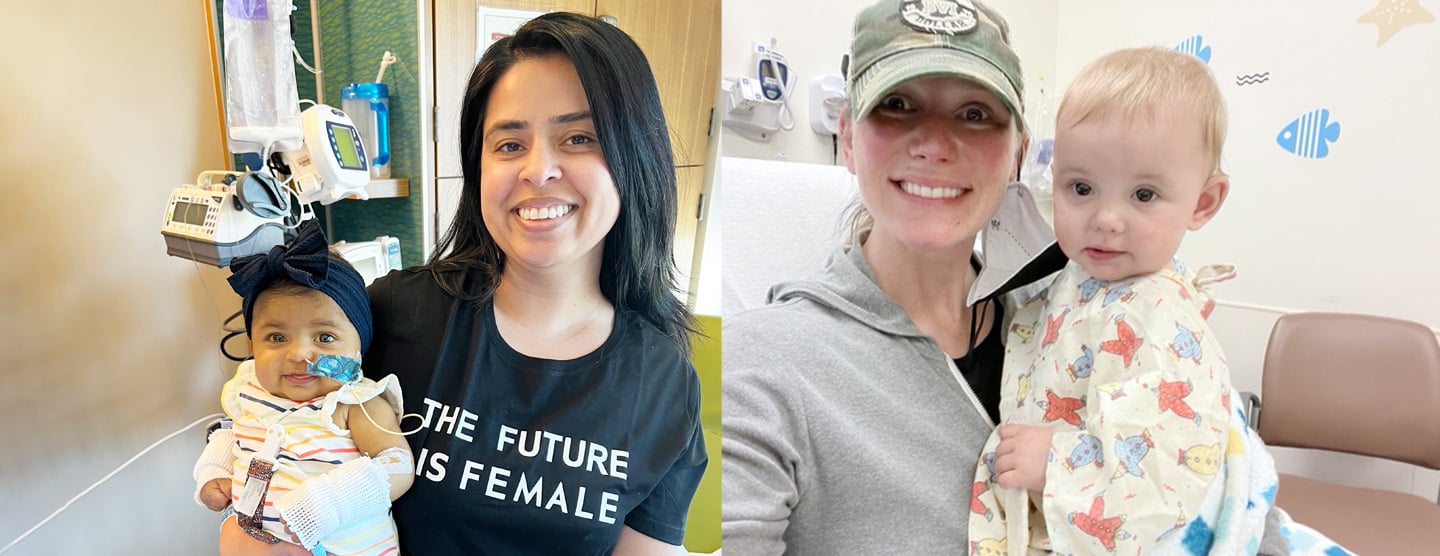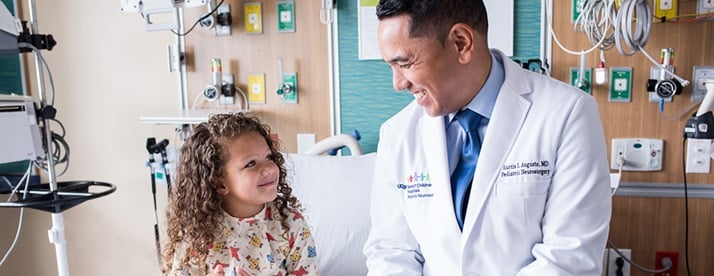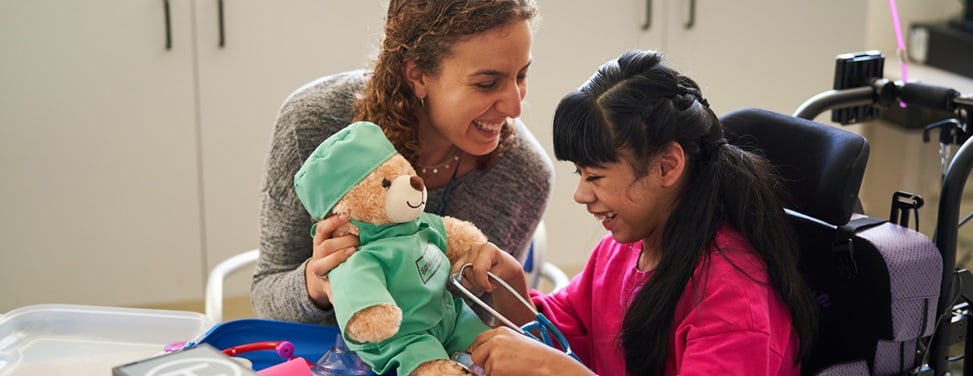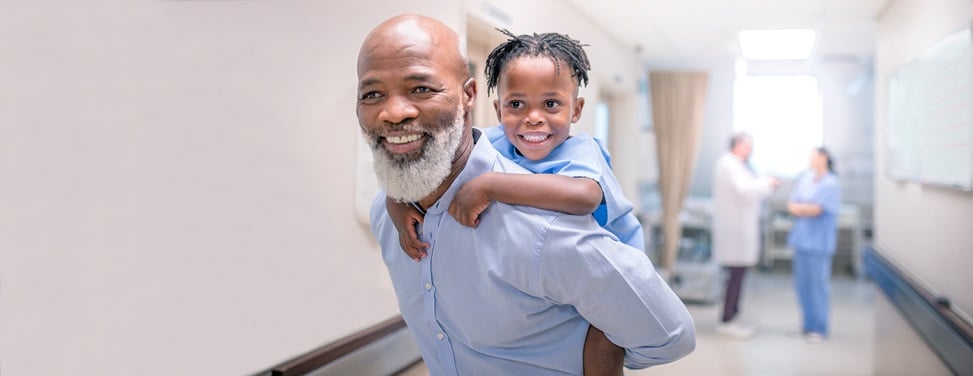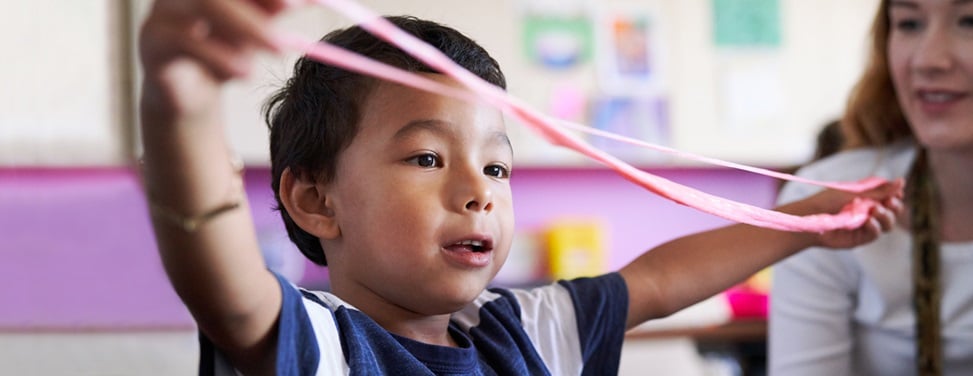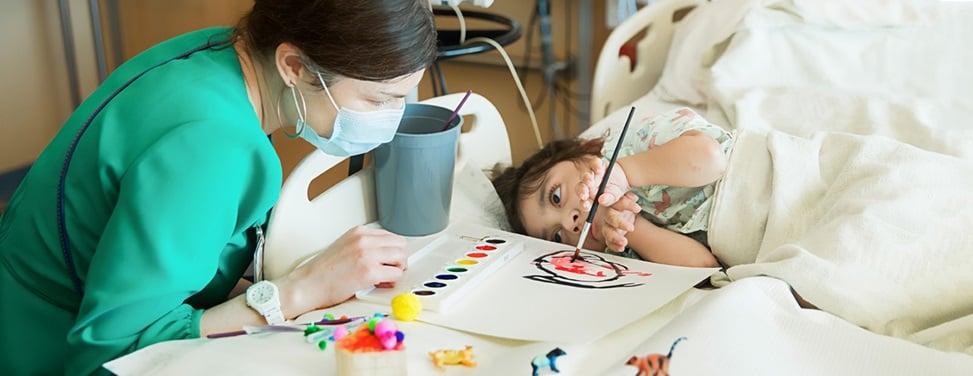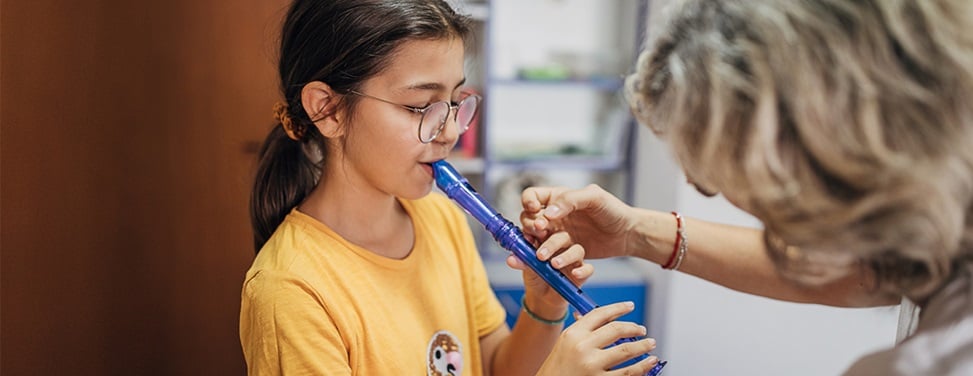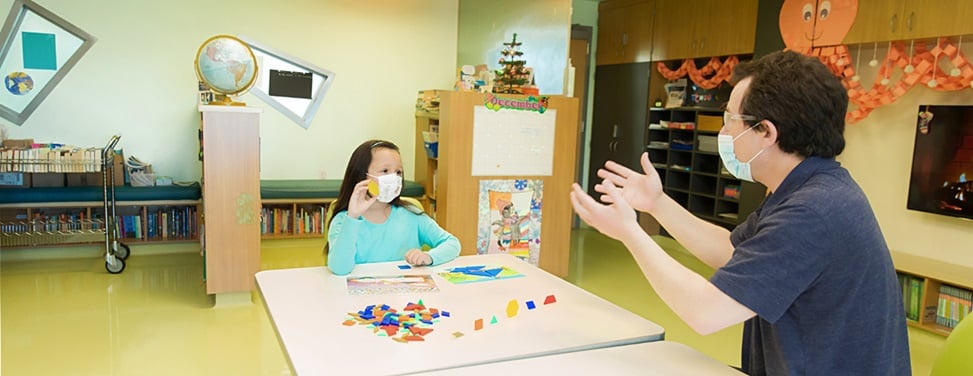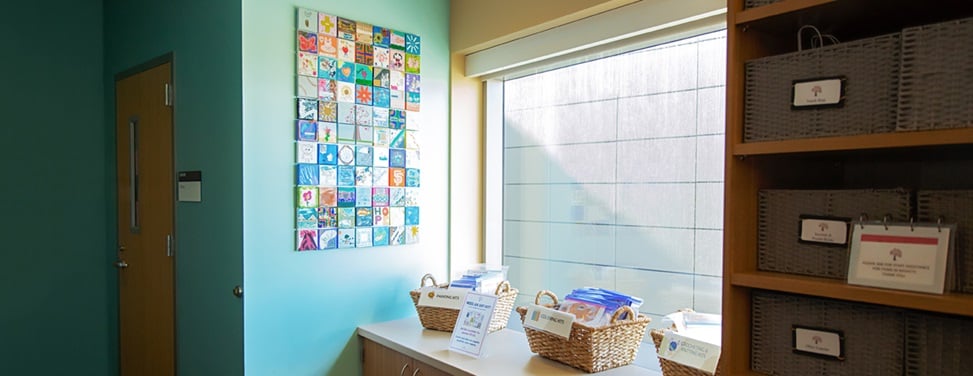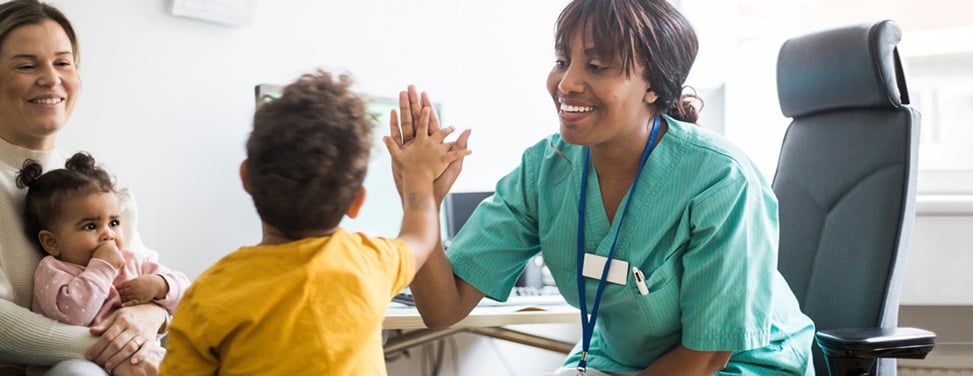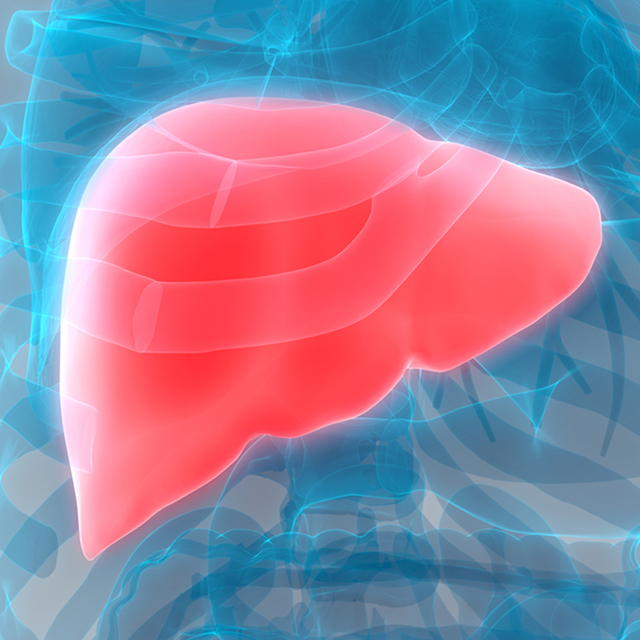
Pediatric Liver Center
At the Pediatric Liver Center, we provide compassionate, comprehensive care to children of all ages – from newborns to teenagers – with liver and bile duct disorders. Our goal is to help every child with liver problems live as happy and healthy a life as possible.
We employ both surgical and nonsurgical interventions, using minimally invasive techniques whenever possible to reduce the risk of complications and allow for faster recovery. The Center also has specialized programs, such as our Liver Tumor and Hepatoblastoma Clinic and Pediatric Liver Transplant Program, which are nationally known for their excellent outcomes.
Our team of renowned specialists includes pediatric hepatologists (liver disease specialists) and surgeons, as well as diagnostic specialists who focus on liver disorders. Our combined expertise and leadership in cutting-edge research allow us to offer the most advanced and effective treatments for all types of liver disease.
We have multidisciplinary clinics, where we're able to focus on care for specific conditions, including:
- Autoimmune liver disease
- Choledochal cysts
- Cholestatic diseases (biliary atresia, Alagille syndrome)
- Fatty liver disease and obesity
- Fontan-associated liver disease
- Liver disease in inflammatory bowel disease (IBD) and immunodeficiency
- Portal vein thrombosis (PVT) and portal hypertension
The continuum of care provided at our center can span a patient's entire youth, from infancy through adolescence. We also help prepare young people and parents for the transition to adult care and, once they're ready, facilitate their move to the UCSF Liver Disease and Transplant Clinic or other specialists for adults.
Support our program
To help the Pediatric Liver Center expand its services and provide crucial care to the families who need it most, please consider making a gift in support of our work.
Our locations (6)
Our team
-

Kate Cheng
MD
-

Soo-Jin Cho
MD, PhD
Anatomic Pathology, Pediatric Clinical Pathology -

Christopher E. Freise
MD
Pancreas Transplant Surgery, Transplant Surgery -

Sang-Mo Kang
MD
Kidney Transplant Surgery, Liver Transplant Surgery -

K. Pallav Kolli
MD
Diagnostic Radiology, Interventional Radiology -

Hanmin Lee
MD
General Surgery -

Anne Lyon
MD
Pediatric Gastroenterology, Pediatric Hepatology -

Sarah L. Maxwell
MD
Pediatric Gastroenterology, Pediatric Hepatology -

Prita Mohanty
MD
Gastroenterology -

Willieford Moses
MD
Pediatric General Surgery -

Amar Nijagal
MD
General Surgery -

Emily R. Perito
MD, MA
Pediatric Gastroenterology, Hepatology -

Arun Rangaswami
MD
Pediatric Hematology, Pediatric Hematology Oncology -

Sue Rhee
MD
Pediatric Gastroenterology -

Philip Rosenthal
MD
Pediatric Gastroenterology -

Alejandro Sweet-Cordero
MD
Hematology, Medical Oncology -

Sharad I. Wadhwani
MD, MPH
Pediatric Gastroenterology -

Lisa Gallagher
NP, MSN
Awards & recognition
-

Ranked among the nation's best in 11 specialties
-
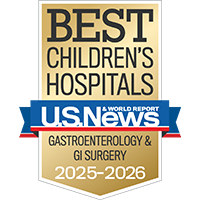
Top 10 in the nation for gastroenterology & GI surgery
Patient stories
Children with biliary atresia thrive after transplants
Two mothers became living donors for their babies, Sahej and Frankie, who were diagnosed with a life-threatening liver condition shortly after birth. Both are now thriving.
Clinical trials
Thoracotomy Versus Thoracoscopic Management of Pulmonary Metastases in Patients With Osteosarco...
Estimated four year thoracic event free survival (tEFS) where tEFS is calculated as the time from study enrollment to thoracic cavity event. Any recurrence within the pulmonary parenchyma, involving the pleural surface or the drai...
Recruiting
More about this studyProject: Every Child for Younger Patients With Cancer
The number of patients who agree to be in the Biobanking part of the study and have leftover tumor tissue and some normal blood, bone marrow, or other tissue saved for future research.
Recruiting
More about this studyHealth Advocate for Children After Liver Transplant
After the perioperative period, it is an objective outcome closely linked with poor adherence/challenges with self-management. Investigators found strong associations between material economic hardship and TCMR episodes of TCMR in...
Recruiting
More about this studyTargeted Therapy Directed by Genetic Testing in Treating Patients With Locally Advanced or Adva...
Will be estimated over time and considered in relationship to changes in treatment trial cohort status (activations, suspensions, terminations).
Recruiting
More about this studyChemotherapy for the Treatment of Patients With Newly Diagnosed Very Low-Risk and Low Risk Fusi...
The Kaplan-Meier method will be used to estimate 3-year FFS along with 80% log-minus-log transformed confidence limits for very low risk (VLR) patients.
Recruiting
More about this studyA Study to Test the Addition of the Drug Cabozantinib to Chemotherapy in Patients With Newly Di...
Only patients with high risk osteosarcoma who have a primary tumor considered resectable at the time of enrollment will be enrolled to this part of the trial. If a feasible dose cannot be established, the study committee will cons...
Recruiting
More about this studyET140203 T Cells in Pediatric Subjects With Hepatoblastoma, HCN-NOS, or Hepatocellular Carcinom...
Safety of ET140203 T cells as assessed by the number of adverse events (AEs) after infusion
Recruiting
More about this studyCheckpoint Inhibition In Pediatric Hepatocellular Carcinoma
irRECIST criteria
Recruiting
More about this studyFood Insecurity and MASLD: A Fruit and Vegetable Intervention Study
What percentage of money of the vouchers were used monthly
Recruiting
More about this studyA Study of Combination Chemotherapy for Patients With Newly Diagnosed DAWT and Relapsed FHWT
Kaplan-Meier method will be used to estimate EFS, defined as the time from study entry until relapse or disease progression, secondary malignancy, or death.
Recruiting
More about this studyPlan your visit
What to Bring
- Photo I.D.
- Health insurance card
- Insurance authorization, if required
- Doctor's referral, if required
- Recent test results related to your child's condition
- List of medications, including dosages, plus any your child is allergic to
- List of questions you may have
- Device or paper for taking notes
Support services
Our research initiatives
Translation, please
We have interpreters for Cantonese, Mandarin, Spanish, Russian, American Sign Language and more.
Request an interpreter




























